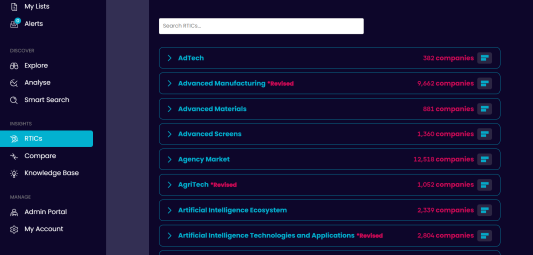We absolutely love spotting interesting companies in our data. We love it even more when they’re making delicious food and drinks.
Imagine how pleased we were when we came across the UK’s first craft sake brewer – Kanpai London. Taking their name from a Japanese way of saying ‘cheers’, they’ve captured the spirit of Kyoto and built a business around it in Peckham.
Following a trip to Japan, they took their passion for sake, earned the backing of other fans through a Crowdfunding campaign and scaled up, so you can now find their sake in shops, restaurants, and bars across the UK. You can also buy their sake online and, when we’re all allowed out, visit their bottle-shop. Will Jarvis shares their history in detail at Sake Matters.
What has Kanpai got to do with industrial data?
We’re glad you asked. As you probably know, we’re pretty vocal about the problems with SIC (the codes used to classify businesses in the UK). Kanpai is a good example of a wonderful business that is almost impossible to find in the official data.
We never would have found them using SIC. Like many new businesses, there isn’t a SIC code that accurately describes what they do. They’re classified under SIC code 11040 – Manufacture of other non-distilled fermented beverages (alongside companies producing kombucha, mead, shots in a tube and juice drinks).
Of course there isn’t a code for sake brewers. It’s too niche right? You can’t have a code for everything. But that’s exactly how the current system works – it relies on having a code for every industry. And that’s why there isn’t a good code for new and innovative sectors like AI, AgriTech, cyber or net-zero. The system simply can’t keep up, and will always lag behind reality.
Brewing up a new method of classification
Brewing beer is one of the most traditional industries you could hope to find in the UK. It’s a sector that the system of SIC is designed for, and the codes work well for it (SIC Code 11050 Manufacture of Beer).
However, there has been a revolution in the brewing industry over the last 20 years. Customers have started to demand more choice and new brands have emerged. Niche types of beer have sprung up and there is a whole new world of variety. Innovation is now the watchword for brewers. The value in beer is no longer in huge industrial output alone. This revolution is often called ‘craft beer’, but it isn’t well defined.
What is craft beer? We know it’s not an SIC code, but what is it? The Data City lets us explore that question through machine learning. We pick three companies that we think do craft beer, and wait for The Data City to return a list of every company in the UK that it thinks is similar to them.
We get rid of the ones that aren’t, and boost the ones that are, and after a few hours we have a new definition that a human and a machine have together defined as “craft beer”.
A human in the loop
This is the stage where our preconceptions get challenged, and is when we came across Kanpai for the first time.
What does Kanpai do? They don’t brew ‘beer’. Except that sake is a brewed grain, just like beer. And just like ‘craft beer’ which involves adding accented old or new flavours to a traditional drink, Kanpai are adding new twists to sake, and playing around with carbonation, alcohol levels, branding, and packaging.
That’s why we have a ‘human in the loop’, working alongside and training the technology.
The power of The Data City is that it lets us define new sectors like craft beer. Just like Kanpai, 50% of the companies in the sector are outside of the SIC Code for traditional brewers. It also challenges us to think about what we really mean by ‘craft beer’ and see the same innovations happening in lots more places than we would have imagined without help.
The sake example is a really neat demonstration of why industrial classification needs overhauling. Let’s create a system that makes it easier to find the UK’s most interesting companies and most dynamic emerging sectors. Kanpai!
#sakerevolution


